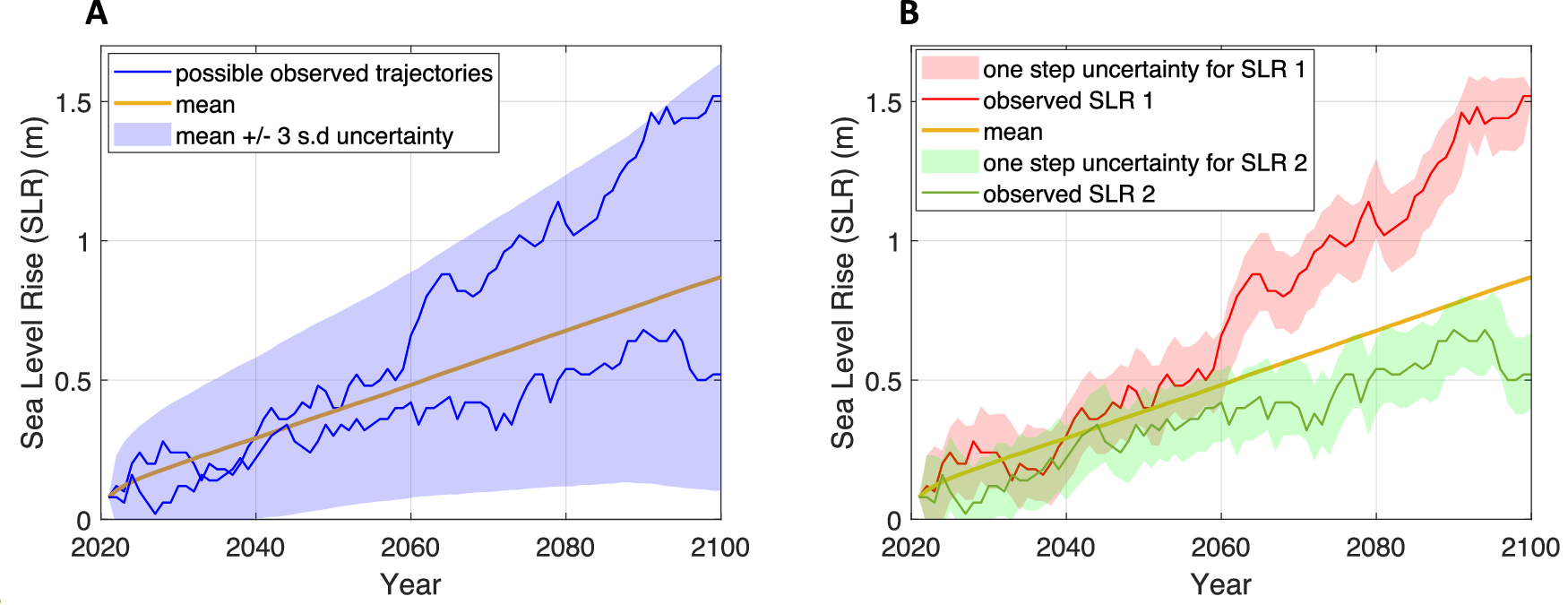2025-04-18 ラトガース大学
<関連情報>
- https://www.rutgers.edu/news/most-cost-effective-approaches-protect-against-rising-seas-are-flexible-adaptable-ones
- https://www.pnas.org/doi/10.1073/pnas.2402826122
気候変動適応のための強化学習ベースの適応戦略: 沿岸域の洪水リスク管理への応用 Reinforcement learning–based adaptive strategies for climate change adaptation: An application for coastal flood risk management
Kairui Feng, Ning Lin, Robert E. Kopp, +1, and Michael Oppenheimer
Proceedings of the National Academy of Sciences Published:March 18, 2025
DOI:https://doi.org/10.1073/pnas.2402826122

Significance
Traditional risk management frameworks are inadequate for long-term climate adaptation, given the substantial uncertainty in climate projections. The study highlights the strong potential of reinforcement learning (RL) in modeling and informing adaptive climate decision-making. Focusing on coastal flood protection strategies for Manhattan in New York City that incorporate continuous observations of sea-level rise, the study demonstrates RL-based designs’ substantial cost-reduction ability compared to conventional numerical methods. Moreover, it manifests RL’s ability to handle complex policy designs, extreme economic losses, potential expert misjudgment, and, more broadly, the critical role of systematic learning and updating in climate change adaptation.
Abstract
Conventional computational models of climate adaptation frameworks inadequately consider decision-makers’ capacity to learn, update, and improve decisions. Here, we investigate the potential of reinforcement learning (RL), a machine learning technique that efficaciously acquires knowledge from the environment and systematically optimizes dynamic decisions, in modeling and informing adaptive climate decision-making. We consider coastal flood risk mitigations for Manhattan, New York City, USA (NYC), illustrating the benefit of continuously incorporating observations of sea-level rise into systematic designs of adaptive strategies. We find that when designing adaptive seawalls to protect NYC, the RL-derived strategy significantly reduces the expected net cost by 6 to 36% under the moderate emissions scenario SSP2-4.5 (9 to 77% under the high emissions scenario SSP5-8.5), compared to conventional methods. When considering multiple adaptive policies, including accomodation and retreat as well as protection, the RL approach leads to a further 5% (15%) cost reduction, showing RL’s flexibility in coordinatively addressing complex policy design problems. RL also outperforms conventional methods in controlling tail risk (i.e., low probability, high impact outcomes) and in avoiding losses induced by misinformation about the climate state (e.g., deep uncertainty), demonstrating the importance of systematic learning and updating in addressing extremes and uncertainties related to climate adaptation.


